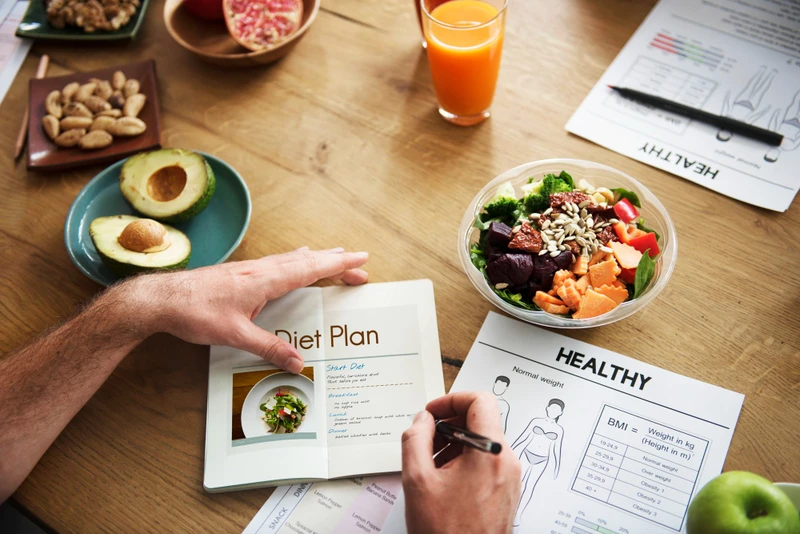- Published on: Apr 23, 2024
- 2 minute read
- By: SecondMedic Expert
Top Tips For Staying Healthy This Summer
Summer is here, bringing with it sunshine, warmth, and plenty of opportunities to enjoy the great outdoors. While it's a time for fun and relaxation, it's also crucial to prioritize your health during these hot months. With the right approach, you can stay healthy and make the most of the summer season. Here are some simple yet effective tips to help you stay on top of your health this summer.
Stay Hydrated: With temperatures rising, it's essential to stay hydrated throughout the day. Drink plenty of water, especially if you're spending time outdoors or engaging in physical activities. Dehydration can lead to fatigue, headaches, and even heatstroke, so keep a water bottle handy wherever you go.
Protect Your Skin: Sunscreen is your best friend during the summer months. Apply a broad-spectrum sunscreen with SPF 30 or higher generously to all exposed skin before heading outside. Reapply every two hours, especially if you're swimming or sweating. Wearing protective clothing, such as hats and sunglasses, can also help shield your skin from the sun's harmful rays.
Eat Fresh and Light: Take advantage of the abundance of fresh fruits and vegetables available during the summer. Incorporate plenty of salads, smoothies, and grilled vegetables into your diet. These foods are not only delicious but also packed with essential nutrients to keep you feeling energized and healthy.
Stay Active: Don't let the heat deter you from staying active. Find ways to exercise indoors or during the cooler parts of the day, such as early morning or late evening. Consider activities like swimming, cycling, or taking a leisurely walk in the park. Aim for at least 30 minutes of moderate exercise most days of the week to maintain your fitness levels.
Get Adequate Rest: Summer can be a busy time filled with social events and outdoor adventures, but it's crucial to prioritize rest and relaxation too. Aim for 7-9 hours of quality sleep each night to allow your body and mind to recharge. Create a bedtime routine and ensure your sleeping environment is cool, dark, and comfortable for optimal rest.
Stay Cool: Beat the heat by staying cool indoors during the hottest parts of the day. Use fans, air conditioning, or seek out air-conditioned spaces like malls or libraries to escape the sweltering temperatures. If you must be outside, take frequent breaks in the shade and avoid strenuous activities during peak heat hours.
Practice Sun Safety: In addition to wearing sunscreen, take other precautions to protect yourself from the sun. Wear lightweight, light-colored clothing that covers your skin, and seek shade whenever possible. Avoid prolonged exposure to direct sunlight, especially between 10 a.m. and 4 p.m. when the sun's rays are strongest.
Stay Insect-Free: Summer brings out not only the sunshine but also pesky insects like mosquitoes and ticks. Protect yourself from bug bites by using insect repellent when spending time outdoors, especially in wooded or grassy areas. Wear long sleeves and pants to minimize exposed skin, and check for ticks after spending time in nature.
Stay Hygienic: With warmer temperatures come increased sweat and humidity, making it essential to maintain good hygiene. Shower regularly, especially after sweating, to remove bacteria and prevent body odor. Wear breathable clothing made from natural fibers like cotton to help wick away moisture and keep you feeling fresh.
Stay Mindful of Food Safety: Picnics, barbecues, and outdoor dining are summer staples, but they also pose risks for foodborne illnesses. Keep perishable foods refrigerated until ready to eat, and avoid leaving food out in the sun for extended periods. Use separate cutting boards and utensils for raw and cooked foods to prevent cross-contamination.
By following these simple tips, you can ensure a happy and healthy summer season. Whether you're soaking up the sun at the beach, enjoying a barbecue with friends, or simply relaxing in your backyard, taking care of your health should always be a top priority. Stay hydrated, protect your skin, eat well, stay active, and most importantly, have fun in the sun!
Read FAQs
A. To care for your body in summer, stay hydrated, wear sunscreen, eat light, and exercise indoors during peak heat.
A. Staying healthy in summer involves staying hydrated, eating fresh, protecting your skin, staying active, and avoiding prolonged sun exposure.
A. In summer, avoid heavy, greasy foods, excessive caffeine, sugary drinks, and large meals, opting instead for light, hydrating foods like fruits and salads.










